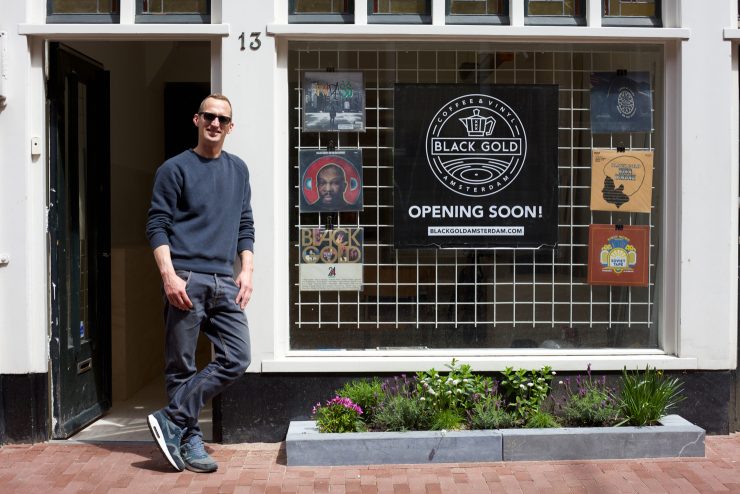
It isn’t just that the floors still lack skid marks of eager chukkas or that the Nuova Point cups have nary a nick in their porcelain. Or that the venue is situated on a surprisingly mellow street in Lastage, the central Amsterdam neighborhood where 16th-century ships offloaded their cargo. Or even that this is an enterprise sui generis: half specialty coffee bar, half specialty record shop.
What feels really new about Black Gold is the man behind it. After 15 years of “working in an office, drinking lots of bad coffee,” as he recalls it, Siebrand van Hengel has obviously set his turntable to a different speed.
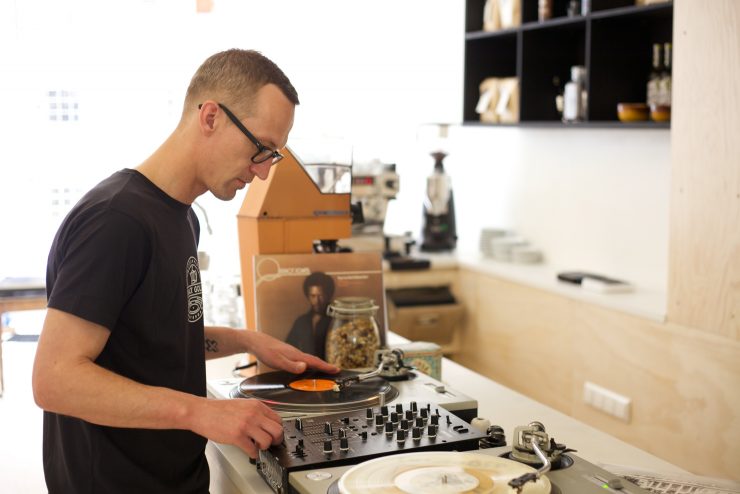
To imagine his old incarnation, an inspector for the Dutch Media Authority tasked with detecting hidden advertisements in broadcasts, is unsettling—his is a globally relatable story. He admits the work drove him to hit 10 cups a day. “You drink coffee because it’s just a moment away from your horrible job,” he says.
As a longtime record collector and devotee of boom bap—’90s and ’90s-inspired hip-hop—opening a music store had been a dream. But while he let his vinyl vending visions run wild, he also had doubts. “You start thinking, ‘Is there enough money in it? Can I pay off my house?’” he remembers.
Then coffee called. “I started thinking of coffee and vinyl as a way of supporting each other. It sort of seemed like they connect somehow,” he says. “They’re both analog in a way.”
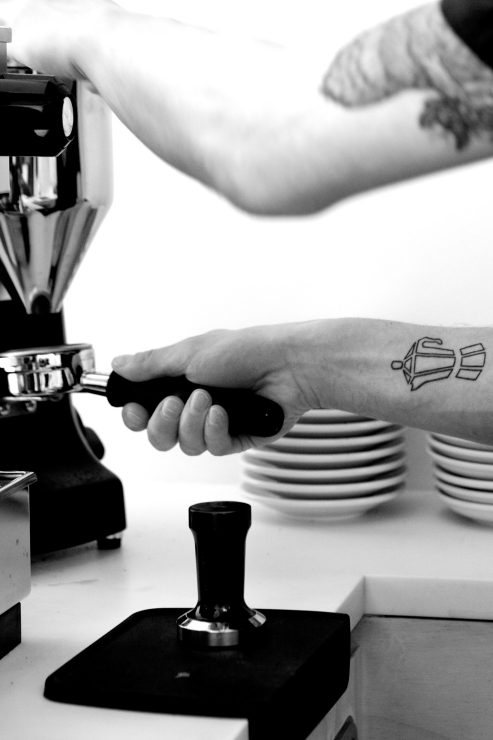
These days animated and uncynical, Van Hengel has a moka pot inked on his inner forearm. He got the tattoo nearly a year ago when, as he explains, “I made the decision to do something about my passion.” That was when he left his daily grind for a Mazzer Kony grinder.
Soon, plans for his own coffee bar were underway. Of all the potential suppliers Van Hengel spoke with, he felt most at home with White Label Coffee, a roaster and cafe not far from where he lives in Amsterdam-West. “We sort of clicked because of the music, and the coffee they do is great,” says Van Hengel, referring to White Label co-owner Elmer Oomkens, who hold equivalent esteem for A Tribe Called Quest. “There was an instant connection.”
Van Hengel also credits Oomkens and his partner, Francesco Grassotti, for teaching him much of what he now knows about the business. Today, White Label coffees are Black Gold’s mainstay. Two espresso roasts—including a “delicate” Brazilian praised by Van Hengel for being more fruity than chocolatey—are well treated by the gleaming La Marzocco Linea Classic. At least four other roasts are available as filter coffee selections.
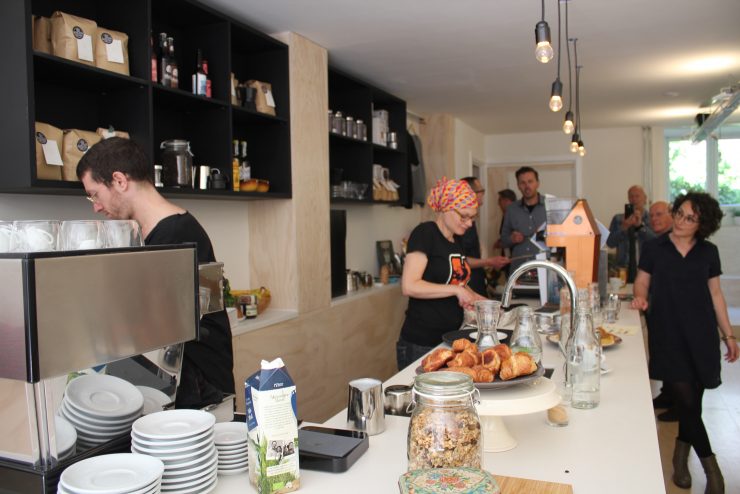
An array of single-origin loose leaf teas comes from Amsterdam brand CiTea. The banana bread recipe is courtesy Carmen da Silva Wells, Van Hengel’s girlfriend, with whom he shares ownership of the shop and a child.
As for Van Hengel’s concern about being able to pay his mortgage, those worries have abated, temporarily at least, through CrowdAboutNow, a Dutch crowdfunding network that allowed Van Hengel to collect 20,000 Euros. The startup cash came from 77 contributors, some friends and acquaintances, but also strangers, like the “banker from Luxembourg that invested just a small amount.”
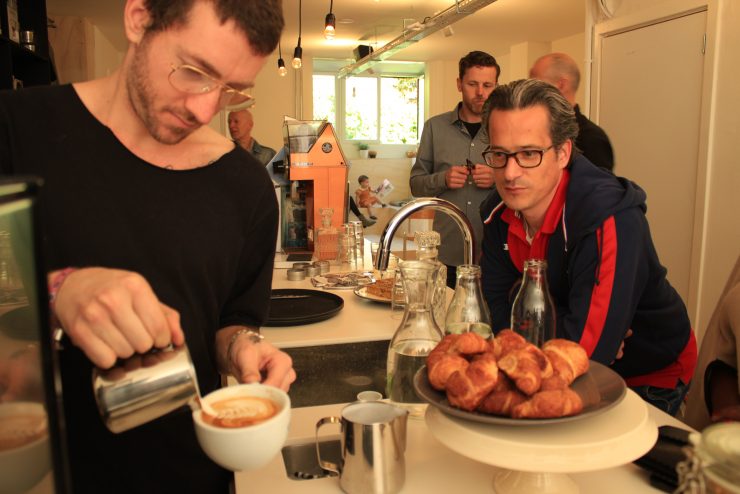
The thought of having to return the money, with interest, over the next three years does not seem to ruffle Van Hengel. All those hours working as an inspector must have sharpened his senses, equipping him with the ability to source the best of beans and beats for Black Gold. You could say he’s—as three New Amsterdammers succinctly put it in 1992—got the skills to pay the bills.
Black Gold is located at Korte Koningsstraat 13, Amsterdam.
Karina Hof is a freelance journalist based in Amsterdam. Read more Karina Hof on Sprudge.
Photos by Tim van de Voort and Tobias van Hengel.
The post Black Gold Coffee And The New Amsterdam appeared first on Sprudge.

